April Articles....
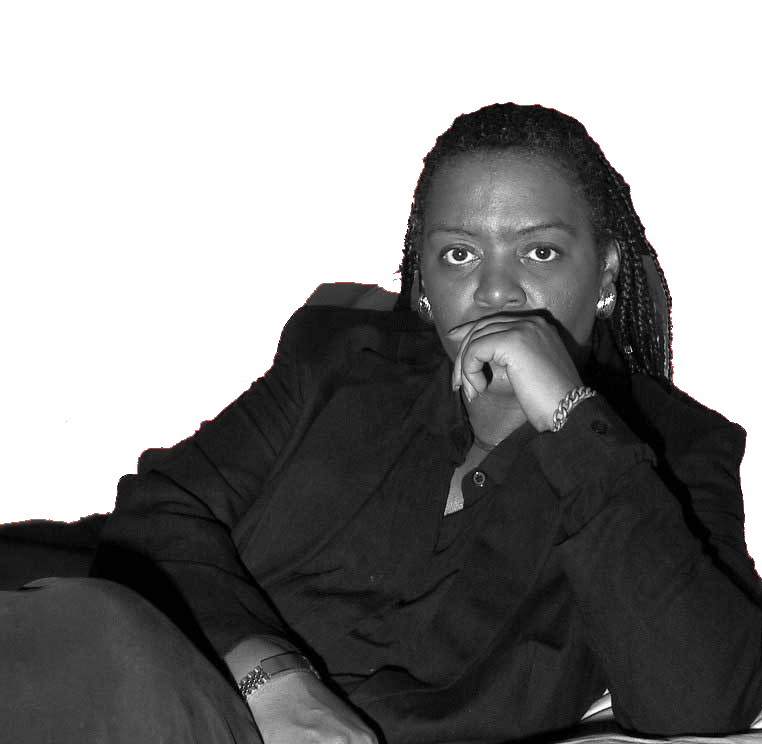 Angela
Odom and www.FemmeNoir.net Angela
Odom and www.FemmeNoir.net
Shonia Brown -- Nghosi Arts e-Newsletter 2003
Angela Odom realized at a very young age that
trying to search for women of color was difficult in a community
that was filled with cliques. If you didn't know somebody that
was a part of a clique, then it was difficult to know which
women were straight and which were lesbian. "It's easy to detect
a white lesbian, but black women are more difficult," she
explains. It wasn't until Angela was in a long-term relationship
during her 30s that she was introduced into the life of out
black lesbians. Through her relationship with her lover, she was
encouraged to create an on line forum for other women young and
old who were experiencing the same problem that she did when
coming out or searching for a connection to the black lesbian
community. "I want a young college student living at home to be
able to get on the computer at any time of the day or night, and
be one click away from the information that she needs about her
community. And if she's not out to her family, the only thing
anyone will hear is the tapping of the keys on the computer. I
want to be the place that an older woman who finally comes out,
can come to in order to locate women like herself and learn more
about that community and find strength and pride in that
community."
[Read
More]
 Book
Review of Getting Unstuck Book
Review of Getting Unstuck
by Davida Jackson -- Nghosi Arts e-Newsletter 2003
If I had to sum this book up in one word, it
would be "illuminating". I choose the word "illuminating"
because the book definitely opened my eyes, and allowed me to
see clearly the need for a book of this magnitude to be
circulated.
I encourage every victim of abuse, every
perpetrator of abuse, and every person that has freed themselves
from the pain of abuse, to embrace this book. I found myself on
an emotional roller coaster as I turned the pages of this novel.
Conscious keeps your attention with her down to earth and savvy
style of writing. She describes so intensely the confusion,
happiness, pain, hurt and love that she has experienced through
out her life, that you feel as if you are right there through
all of the trials and triumphs. Her unshakeable faith and
courage to withstand through some of the most difficult times
imaginable, fills you with the empowerment to conquer your own
struggles.
[Read
More]
 Linda Villarosa -- From Idol Life to Ideal Life Linda Villarosa -- From Idol Life to Ideal Life
(Women In The Life)
“Yes, I feel a responsibility – to live my life out. It’s
what is best for me. If someone doesn’t know, I usually come
out. I don’t want my kids to feel any shame, so I live
completely out. I am the worst liar. I can’t tell anything
that’s not true. It’s too stressful. It’s simpler and healthier
for all involved. My life message is that living your life as
you are without hiding and without apology is best. You don’t
have anything to apologize for and have nothing to be ashamed
of.” -- Linda Villarosa
I ran into
Linda Villarosa in LA at a Black Media Task Force conference
on HIV/AIDS. Sponsored by the Black AIDS Institute, the
conference was created to educate the African American press on
the HIV/AIDS epidemic in our community. After the sobering
conference, she and I sat down for a candid chat.
She came out to the entire country eleven years ago – in Essence
Magazine. Linda Villarosa, a staff writer for Essence, wrote an
in-depth story on coming out to her surprisingly supportive
mother. A large photo of Linda and her mother accentuated the
article. It was May of 1991. It was a groundbreaking story, and
it was a first for an editor at a major black publication. The
story catapulted Linda Villarosa to national stardom. It also
put the gay rights issue front and center in the mainstream
African American community.
[Read
More]
GURRRLOLOGY
 “Nigger
Rich” “Nigger
Rich”
by Vicky Nabors (4/1/2003)
Chicago Blacklines
Cracker, Jew, white
trash, spic, whop, dyke, carpet muncher, sissy, fag, hoe, punk,
nigger!
Powerful words, huh? Often people intentionally use slurs as
weapons of attack to insult one’s character or ethnicity. But
what happens when people use phrases that contain one or more of
these words out of innocent ignorance? For example, a white
co-worker, Al, was sharing a story with me about employee
motivation. He was quite animated as he acted out his story of
how our boss used to walk in throwing $100 bills to employees.
Al said, “I remember back in the good old days when our boss was
different, he’d pull out his thick wallet, and ... excuse the
pun ... he was ‘nigger rich,’ and toss $100 ...”
[Read
More]
 Purrfectly
Speaking Purrfectly
Speaking
Outgrowing
by Anita Charlot (4/1/2003)
Chicago Blacklines
I was asked
to address the topic of “Outgrowing your Partner” in this
particular issue. I will honor this request in three parts over
the next three months. Part I will address the “more ambitious”
partner and their challenges; Part II will address the “more
content” partner and their challenges; and part three will list
ways for both partners to embrace the change as a means of
growth for the entire relationship … or not, to include my
definition of the following, a) the leader, b) the submissive,
and c) the equal.
As an individual who is constantly evolving, I have found myself
as well as others worrying and considering things that I know
should not come into play while considering your personal
growth. Things like … if I complete my degree, will my partner
understand what that entails? Will I get quizzed when I need to
go to the library or to study group? Will they understand the
totality of what it means to be a student? Will I constantly
have to reassure them that I am not going to leave them or meet
someone in school that I can talk “intelligently” with? Will
they be supportive in other areas of my life, i.e. cleaning
house while I study; picking up or babysitting the kids;
cooking/cleaning/ordering in? If I learn this, acquire that …
will it cost me my relationship, etc.
[Read
More]
 Monthly
Feature: Black in
Chicago Before we were straight or gay, we
were Black Monthly
Feature: Black in
Chicago Before we were straight or gay, we
were Black
by D. Kevin McNeir (4/1/2003)
SHARP Celebrates
Community Service
Pictures with this
article courtesy of the SHARP event. Awards were given to
Frank Oldham Jr. (top left), and Phyllis L. Rodgers (below
left).
Back in the not-so-good-old-days, public health advocates in the
African-American community had to meet at their homes in
obscurity for fear of repercussion from their employers. But
meet they did and very quietly they began to build coalitions
and develop strategies to address what was then a most
mysterious disease. Today we know that “disease” by the acronym
HIV/AIDS and many of those early warriors are now advocates on
the front line. And some of those same warriors are now
affiliated with The Southside HIV/AIDS Resource Providers
[SHARP]. They recently held their first annual fundraiser at the
Crystal Light Palace in Burbank where they reminded the
standing-room-only crowd that they are engaged in “a fight to
the end [and] it’s not over until it’s over.”
[Read
More]
Raina Has Two Moms
on The Division
From www.afterellen.com

|

|
|
|
Taraji P. Henson is Raina
|
Sally Struthers is Eve
|
Debbie Allen is Wanda
|
The
January 19th episode of Lifetime's cop drama The Division
revealed that Inspector Raina
Washington was raised by a lesbian couple.
 Now
in its third season, The Division revolves around a
handful of female police officers--played by Bonnie Bedelia,
Nancy McKeon,
Lisa Vidal,
and Tracey Needham--and one male one (played by Jon Hamm) in the
San Francisco Police Department. Over the past two years,
The Division has emerged as Lifetime's highest-rated
series, and features storylines that intertwine the characters'
personal and professional lives. Now
in its third season, The Division revolves around a
handful of female police officers--played by Bonnie Bedelia,
Nancy McKeon,
Lisa Vidal,
and Tracey Needham--and one male one (played by Jon Hamm) in the
San Francisco Police Department. Over the past two years,
The Division has emerged as Lifetime's highest-rated
series, and features storylines that intertwine the characters'
personal and professional lives.
Taraji Henson joined the cast of The Division
last season as Officer Raina Washington after the
departure of actress Lela Rochon (Henson's character was
promoted to "Inspector" this season). Previously, Henson had
roles in films like Baby Boy (2001) and The
Adventures of Rocky and Bullwinkle (2000) and some
appearances on TV series like Felicity and Strong
Medicine.
[Read
More]
Lesbian and Bisexual Women of Color on TV
Sarah Warn, December 2002 (www.afterellen.com)
|

|

|
Although there have been several one-episode characters,
before the 2001-2002 television season the
number of recurring, primary or secondary (a "secondary
character" is defined as a character who appears in at least 3
episodes of a series, but is not a primary cast member on the
show) lesbian/bisexual women of color on television has been,
well, paltry. In fact, there's only been three in the decade
prior to this: Ruthie on The Real World: Hawaii
(1999) and Rosetta Reid (Jennifer Lewis) and Danny Gates (Cree
Summer) on the short-lived 1995 drama Courthouse
Then came the 2001-2002 season, which saw a "huge" increase in
the number of lesbian and bisexual women of color on TV in
one year...to three. Three out of fourteen total primary
and secondary lesbian characters on television in the 2001-2002
season.
[Read More]
Review of "The Greatest Taboo: Homosexuality in Black
Communities"
Sarah Warn, November 2002 (www.afterellen.com)
|

Singer Bessie Smith
|

Drag King Gladys Bentley |

Writer/Professor bell hooks
|
Does
homosexuality remain the greatest taboo in black culture? Is
homosexuality a European cultural imposition
on Africans? Are you black first or queer? These are the
questions the anthology "The Greatest Taboo: Homosexuality in
Black Communities," edited by Delroy Constantine-Simms, seeks to
answer through essays from academics, journalists, other
writers.
There are twenty-eight essays in the book, with thirteen of them
focusing on issues related primarily to African-American men or
male homosexuality, and only four focused on lesbianism and
bisexuality in the black community (a shortcoming which
Constantine-Simms plans to rectify in the second volume, which
is set to be published in the summer of 2003).
[Read More]
On FemmeNoir
In February, we celebrated
both Dr. Martin Luther King’s actual birth date and a national
holiday in his honor. Since I was 9-years
old (going on 40), I have lived my life trying to realize the dream of
not being acknowledged by the color of my skin, but by the
content of my character. Excellence, in my book and as the kids
would say; RULES! I have long contemplated and have never
forgotten Dr. King’s final speech on April 3, 1968.
This year, another
historic event will take place here in Los Angeles: The
National Black Lesbian Conference. We as Black Lesbians need to
come together this year to form coalitions, share ideas,
converse, form alliances, network, and show our support for one
another. Not all of us are political, not all of us are into
roles, not all of us are Republican or Democrat, not all of us
are activists, not all of us are out, some of us are older, some
of us are younger – let that not be the division wedged between
us. We need to come together as sisters, sorors if you will, to
share experiences because some of us have experiences to share
that may prove helpful to someone else. In this way, whatever
problems or successes you encounter upon leaving the conference,
you can share with a fellow soror – whatever you’re dealing
with, wherever you are. Let’s join forces and work together in
unity.
Reasons by Blue Telusma
 Raised in Boston, Massachusetts,
Blue Telusma has been writing since the tender age of eight. At
twelve years old she was admitted into Boston Latin Academy, one
of the top rated exam schools on the east coast. Her junior year
at the Academy she wrote a paper on Alice Walker (author of 'The
Color Purple') and shortly thereafter was presented the
opportunity to meet the highly acclaimed novelist. Raised in Boston, Massachusetts,
Blue Telusma has been writing since the tender age of eight. At
twelve years old she was admitted into Boston Latin Academy, one
of the top rated exam schools on the east coast. Her junior year
at the Academy she wrote a paper on Alice Walker (author of 'The
Color Purple') and shortly thereafter was presented the
opportunity to meet the highly acclaimed novelist.
Blue Telusma's soon to be
released and self published novel, "Reasons" is available
for preview on her site at
BlueCypher.com.
She states "At first there seemed to be the misunderstanding that the
site would just be about me. I quickly cleared that up! lol.
I've visited a lot of black lesbian sites over the years and the
thing I love the most about them is the fact that we as women of
color who love other women are finally setting up our own little
spots on the net where we can share ideas, and information with
each other. For many people who live in small communities where
things pertaining to being "in the life" aren't readily
available to them, the internet is sometimes their only
resource. And because of that I think this is a great medium for
us to use not only to connect with each other but to empower our
sisters out there who have no where else to turn. And that's
really what I had in mind from the start. So basically I guess
the "point" of Blue
Cypher.com isn't only to get my name out
there but it's also a great way to share whatever I know with
everyone else."
She has allowed us to publish a little bit of it here on
FemmeNoir. It is certainly a page turner and I could not
stop reading until I got to the end. Enjoy!
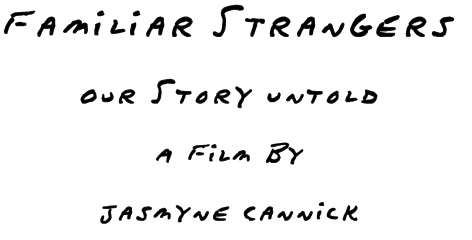 FAMILIAR
STRANGERS: FAMILIAR
STRANGERS:
OUR STORY UNTOLD
By Jasmyne Cannick
Barely Breaking Even Productions (BBE Productions), a division of Bamboo Media, has
embarked upon a three-prong project to include a documentary
film, a photography book and a photo-text exhibit. The project
is a collaboration between journalist and publicist Jasmyne Cannick
and long time activist and writer Charlotte M. Young “My personal
goal is to incite the black family to start talking more openly
about sexual orientation and I believe that once we see the
diversity of gay people and hear their stories, this in itself
will help to combat homophobia in the black community and more
specifically in the black church,” comments Young.
 My
Trip To Nia With Christine My
Trip To Nia With Christine
Article and Photos By Gayle Fuhr
There was a beautiful alter set up and so on the first night
when we were asked to say our name and where we were from, I did
and I mentioned that I had brought a very big Nia supporter with
me, Christine. I asked if I could place her urn on the alter for
the weekend and leave her there until we were ready to have a
ceremony for her on Sunday. I was asked to bring Christine’s
ashes with me the next morning for the opening ceremony and was
asked to talk about her. My first reaction was that there are so
many women here who knew her so much longer than I and maybe
they should speak. I was told that I was entrusted with her and
so it would be more appropriate for me to do so.
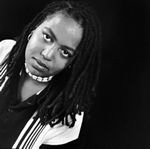 Fear
of a Black Lesbian Planet Fear
of a Black Lesbian Planet
By Samiya Bashir
"It's the big pink elephant in the middle
of the room. Everyone knows it's there
— and we quietly tiptoe around it, afraid that even
acknowledging its existence would throw off the delicate balance
that exists in our pretending it isn't standing there, grazing
on our avoidance. If we do choose to look at the elephant's
skin, we see that she carries the tattoos of racial division —
exclusion, nasty feelings, words, and actions, the unspoken
rules of separation.
Black lesbians trying to find out who we are
both as women of color and as lesbians find the invisible wall
we bump up against while trying to find access into the lesbian
community even harder to bear. White women may feel equally
bruised by a situation where they don't feel they are being
exclusionary at all. Some black women, reeling from accusations
of being overly sensitive, question whether or not we are just
imagining foul play.
BY RHONDA SMITH
Washington Blade
 A
distinguished group of gay and lesbian writers of African
descent gather, and in the very act of doing so find themselves
making a political statement A
distinguished group of gay and lesbian writers of African
descent gather, and in the very act of doing so find themselves
making a political statement
FOR ABOUT FOUR years now Lisa C. Moore, the
founder of RedBone Press, the only black lesbian publishing
house in the U.S., and a handful of friends in her literary
circle have been talking about sponsoring a national conference
for gay writers of African descent.
The conversations traditionally unfolded after they left
OutWrite, a now-defunct national lesbian and gay writers'
conference held in Boston. While OutWrite gatherings would
attract as many as 900 gay writers, Moore and a close colleague,
poet and writer G. Winston James, said it was a mostly white
crowd and issues of concern to many black writers there were
often overlooked.
The Gay and Lesbian Hall of Fame

The Chicago Gay and Lesbian
Hall of Fame is both a historic event and an exhibit. through
the Hall of Fame, residents of Chicago and the world are made
aware of the contributions of Chicago's lesbian and gay
community and the community's efforts to eradicate homophobic
bias and discrimination.
With the support of the City
of Chicago Commission on Human Relations, the Advisory Council
on Gay and Lesbian Issues established the Chicago Gay and
Lesbian Hall of Fame in June 1991. The inaugural induction
ceremony took place during
Gay and Lesbian Pride Week at City Hall, hosted by Mayor
Richard M. Daley. This was the first event of its kind in the
country.
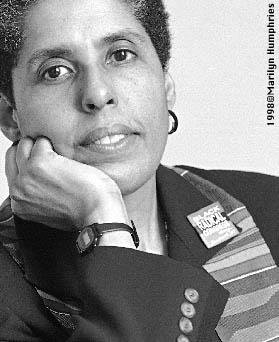 Passing The Torch Passing The Torch
What is Activism?
The Oxford English Dictionary defines 'Activism' as "a
doctrine or policy of advocating energetic action", and an
'Activist' as "an advocate of activism". The Random House
Dictionary furthers the definition of 'Activism', defining it as
an "involvement as a means of achieving political or other
goals, sometimes by demonstrations, protests, etc.".
Much can be learned at the feet of an
activist; those who
have walked the walk and talked the talk. The following
are men and women, straight and gay who have been in the trenches of activism, have
suffered the wounds and who have enjoyed the libations of
success. They are presented here for you to hear their
words and be inspired. You may consider yourself one
person, but one person can inspire many people, or many nations.
 Falling
for Straight Women Falling
for Straight Women
by Sonya Shields
Sonya Shields is an African American lesbian, who came out ten
years ago while living in Washington, DC. Within a few years of
her coming out, she took a position with the National Gay and
Lesbian Task Force. For over six years, she held a senior
position within the organization, joined several national
boards, and participated in other community activities. But
despite her professional career as an activist working to
achieve social justice for lesbian, gay, bisexual and
transgender people, she settled for affairs and relationships
with too many straight women. This is her story.
 World
View: Native Americans World
View: Native Americans
Sex and Spirit: Native
American Lesbian Identity
Native American and First Nations
lesbians have to deal with unique issues as a result of their
history, cultural status, and perceptions as Natives. They come
out of a history of genocide; their people have been persecuted,
killed, kidnapped, and assimilated for hundreds of years and
still face lingering aspects of genocide. They face homophobia
and sexism from their own people; racism from lesbians; and
racism, homophobia, and sexism from the dominant society, not to
mention the classism many Native Americans have to deal with.
 World
View: Brazil World
View: Brazil
Brazil's Hate Crime Murders Number 132 in 2001
This year, with music blaring from more than 20 sound
trucks, hundreds of thousands of people danced and marched
through Sao Paulo Sunday, June 2, in what was billed Latin
America's biggest gay pride parade. Organizers attributed the
huge turnout to the presence of heterosexuals who sympathize
with the gay rights movement.
BUT, Brazil is still the World Champion in the
murder of homosexuals. Every 3 days a gay man,
transvestite or lesbian is brutally murdered in Brazil.
[Read More]
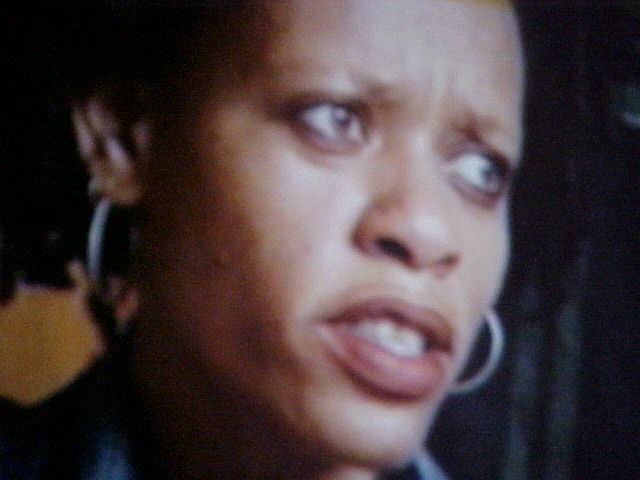 World
View: Africa World
View: Africa
Forging a representative gay liberation movement in South
Africa
The history of gay liberation in South Africa reflects the
history of the country: South African gays were divided along
race, class and gender lines despite their common experience of
sexual oppression.1 For decades, the public face of the South
African gay liberation movement was white, middle-class and male
and as a whole it failed to link itself to the broader
liberation struggle. From today's vantage point the gay movement
was at best equivocal in opposing apartheid, and at worst
complicity in supporting it.
Article also features African lesbian activists, artists and
storytellers.
[Read More]
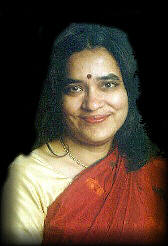 World
View: Reclaiming Gay India World
View: Reclaiming Gay India
with Ruth Vanita (Gay Today)
I called Ruth Vanita
on a lazy winter afternoon about a month ago. I had just
finished reading Same-Sex Love in India, a book
that she co-authored with Saleem Kidwai. Our conversation was
less of an interview and more of a cozy, timeless cosmic chat of
the kind that's called 'adda' in Bengali, which covers
everything from cabbages to kings and spans centuries.
Since she used to teach at an elite women's
college attached to Delhi University, a college that was a
sister college to my own alma mater St. Stephen's, we discovered
many common acquaintances and friends. I felt transported back
in time to the courtyard of the Delhi University coffeehouse
where, in the comforting shade of an ancient banyan tree, I
would engage in passionate political, literary, and
philosophical discussions with teachers and fellow students.
[Read More]
Back to top
|